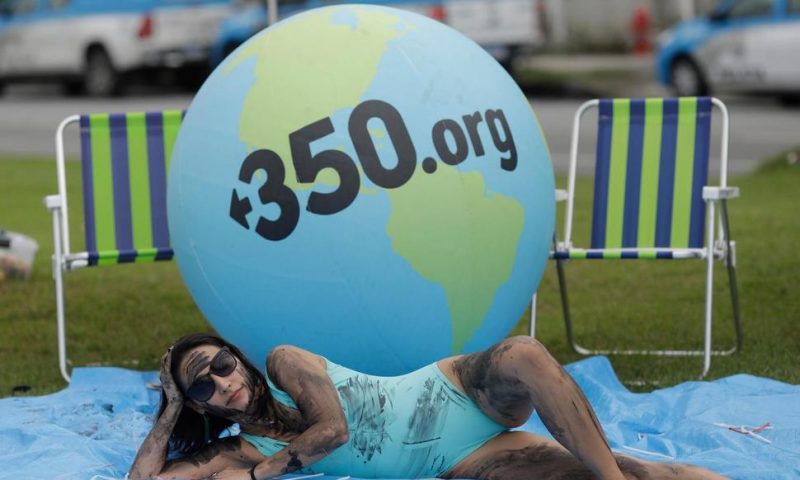The Brazilian government has failed to auction four oil fields located near one of the nation’s biggest coral reef systems.
RIO DE JANEIRO — The Brazilian government has failed to auction four oil fields located near one of the nation’s biggest coral reef systems.
Seventeen companies participated in the 36-block auction held Thursday by the Brazilian Petroleum Agency, which auctioned off a third of the areas for more than $2 billion.
But after possible exploration caused worry among some environmental authorities and organizations, none of the companies submitted offers for the four fields off the coast of the northeastern state of Bahia.
The fields lie some 130 kilometers (81 miles) from the Abrolhos Marine National Park, which is home to rare coral formations.
Adriano Pires, an oil industry analyst, told The Associated Press that companies refrained from bidding for the fields because they “didn’t want to get themselves in the middle of an environmental mess.”
In a report last March, Brazil’s environmental regulator warned an accidental oil spill could “in a short period of time reach areas with endemic and threatened species as well as sites where turtles and marine mammals reproduce.”
On Thursday, a small group of activists gathered outside the hotel where the auction was being held and staged a performance highlighting the impact of an oil spill on marine life. Some carried a banner that said, “Oceans without oil.”
Concern about the direction of environmental policy under Brazilian President Jair Bolsonaro has increased this year as large fires raged in the Amazon. Bolsonaro has often said that environmental protections should not block business, and before taking office Jan. 1, he suggested pulling Brazil from the Paris agreement on climate change. He has since backpedaled and kept Brazil in the accord.
Pires explained that investors believed that bidding for the areas near the Abrolhos park would be too much of a gamble given doubts regarding environmental approval.
“The risk of spending money and not being able to exploit the region is very large,” he said.
Pires compared the four blocks to ones in the northern state of Amapá that were acquired by France’s Total in 2013. The company has yet to be able to begin drilling.
In a statement published on its website after the auction, Greenpeace Brasil said the development was “excellent news for the environment, local communities and the planet.”
“Civil society had already demonstrated that it didn’t approve of oil activity in the area,” it said.

